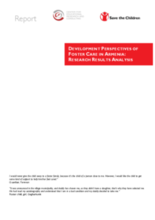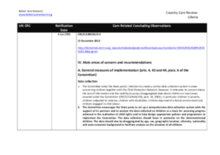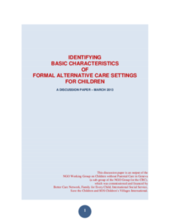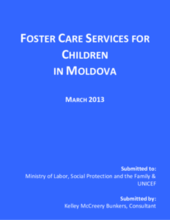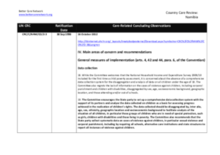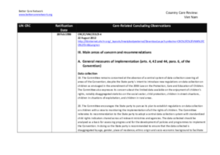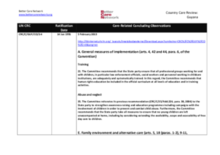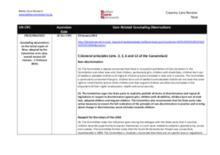Displaying 541 - 550 of 661
This report produced by the Center for Educational Research and Save the Children summarises a broader research study which examined the foster care pilot programme introduced in Armenia in 2005. The study aimed to find out if the pilot program succeeded, what problems arose, how the program could be improved and how foster care in Armenia could develop and expand effectively.
Charts that accompany the article Orphan Fever: The Evangelical Movement’s Adoption Obsession, illustrating the trends in international adoptions from Liberia, Kyrgyzstan, Ethiopia, Uganda, and Haiti to families in the United States.
This country care review includes the Concluding Observations for the Committee on the Rights of the Child adopted as part of its examination of Liberia's second and fourth periodic reports at the 61st Session of the Committee held between 17 September and 5 October, 2012. The Committee’s recommendations on the issue of Family Environment and Alternative Care as well as other care relevant issues are highlighted.
This article presents the findings of an exploratory survey of community perceptions about foster care conducted in Udaipur City, Rajasthan, India, in order to assess the prospects for implementing foster care as an alternative to the dominant system of institutional care available to orphaned and abandoned children in India.
The discussion paper provides an overview of existing definitions of formal care within the UN Guidelines and a summary of the basic characteristics identified for each, together with explanations for the proposed characteristics.
This important assessment of foster care services in the Republic of Moldova explores the differences between the two main types of foster care services provided in that country, including in terms requirements and profiles of caregivers and of the children, the legal and policy framework underpinning them, including the legal status of the foster parent, as well as the allowances and benefits for each type of care
This country care review includes the Concluding Observations for the Committee on the Rights of the Child adopted as part of its examination of Namibia’s combined second and third periodic reports at the 61th Session of the Committee held between 17 September and 5 October 2012, as well as other care-related concluding observations, ratification dates, and links to the Universal Periodic Review and Hague Intercountry Adoption Country Profile.
This country care review includes the Concluding Observations for the Committee on the Rights of the Child adopted as part of its examination of Vietnam’s combined third and fourth periodic reports at the 60th Session of the Committee held between 9 May and 15 June 2012. The Committee’s recommendations on the issue of Family Environment and Alternative Care as well as other care relevant issues are highlighted.
This country care review includes the care related Concluding Observations adopted by the Committee on the Rights of the Child as part of its examination during the sixty-second session (14 January- 1 February 2013) of Guyana’s combined second, third and fourth period reports to the Convention on the Rights of the Child, as well as other care-related concluding observations, ratification dates, and links to the Universal Periodic Review and Hague Intercountry Adoption Country Profile.
This country care review includes the care related Concluding Observations adopted by the Committee on the Rights of the Child as part of its examination during the sixty-second session (14 January- 1 February 2013) of Niue’s initial report to the Convention on the Rights of the Child, as well as other care-related concluding observations, ratification dates, and links to the Universal Periodic Review and Hague Intercountry Adoption Country Profile.

